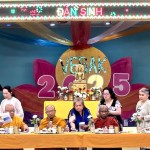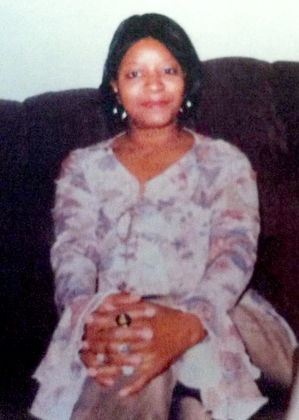Buu Mon Buddhist Temple celebrates 37th Annual Garden Festival and Vesak Observance
Published 4:54 pm Tuesday, June 3, 2025




|
Getting your Trinity Audio player ready...
|
Southeast Texans and beyond took a trip to the Buu Mon Buddhist Temple for the annual Garden Festival and Vesak observance this past weekend.
“I was planning a bachelorette party and during research of what was happening in the Houston area, I came up on information about the Buu Mon Lotus Festival,” Holly Cheramie, from Lafayette, Louisiana, said. “The bridal party loves to experience new cultures, and we weren’t disappointed by the beauty of the flowers and scenery at the temple. We did pop into the food court where we ate the best Vietnamese noodles, Bun Thit Nuong Cha Gio, Shrimp and pork spring rolls with the best peanut sauce with a boba tea. Everyone was so nice and welcoming and patiently explained the food options to us.”
Trending
Jennifer Le, of Beaumont, attended the gathering to help her aunt serve food to donate the money to the temple.
“What caught my attention was the energy of the celebration,” Le said. “The music, the food, the traditional outfits, it felt like a big, family gathering. I learned about Buddha’s birth and how important this day is for many people. It is a time for reflection, kindness, and showing respect. I also saw how strong and united the community is during this event. I got to meet a lot of friendly people, try amazing food, and see some traditional performances. It was also great to be a part of something that helps the community. I think everyone should go at least once.”
The festival was held May 31 to June 1 at the Temple grounds, 2701 Procter St.
Trending
Bhante Thick Tri Quang, Abbot of Buu Mon Buddhist Temple, provided background information on the Temple.
“In 1988, the former Abbot of Buu Mon, Venerable Huyen Viet, established a garden on the temple grounds that has become a showplace, internationally known for its many varieties of lotus, water lilies, and bamboo, Bhante Quang said, adding the Vesak celebration is also held at this time.
The celebration commemorates the birth, enlightenment, and death of Siddhartha Gotama, the Buddha, he said.
“Internationally Vesak known as Buddha Purnima, or Buddha Day, is a significant Buddhist holiday,” he said. “The United Nation adopted a resolution in 1999 to internationally recognize Vesak Day. The United Nations recognizes the importance of Buddhism and its contributions to the spiritual life of humanity and Vesak is celebrated at the United Nations Headquarters and other United Nations offices.”
Sunday morning, the monks and female monks, called Samaneri and Bhikkhuni or “nuns” in English, arrived in a single-file line, hands clasped together in prayer and made their way to a room with tables connected into a U-shape. The monks and nuns each were adorned in different shades of colors on their robes.
“In Theravada Buddhism, the color of robes often signifies humility, simplicity, and renunciation of worldly desires,” he said. “The traditional color is a shade of orange, often described as saffron, ochre-brown, or burnt orange. And there are 2 levels of nun in Theravada Buddhism, namely Samaneri and Bhikkhuni. A female laity can ordain as a Samaneri, which is a novice nun, before the age of 20, but cannot ordain as a Bhikkhuni, a fully ordained nun, until they reach that age. At the age of 20 or after a period of training and adherence to monastic rules, a Samaneri will be considered for Bhikkhuni ordination.
Buddhists and guests were asked to fill the center, and the monks began a prayer.
“People do not go to hell or jail because they do not go to the temple to practice,” he said. “But if they go to the temple to learn and do good deeds, and give up evil deeds, they will not fall into hell, and the risk of imprisonment will also be reduced. In addition, they will receive merit and blessings to help them become more honest people, have more peace of mind, have a happy and peaceful family, and become better citizens in society and the country thanks to knowing how to learn and practice Buddhism to live an honest life.”









